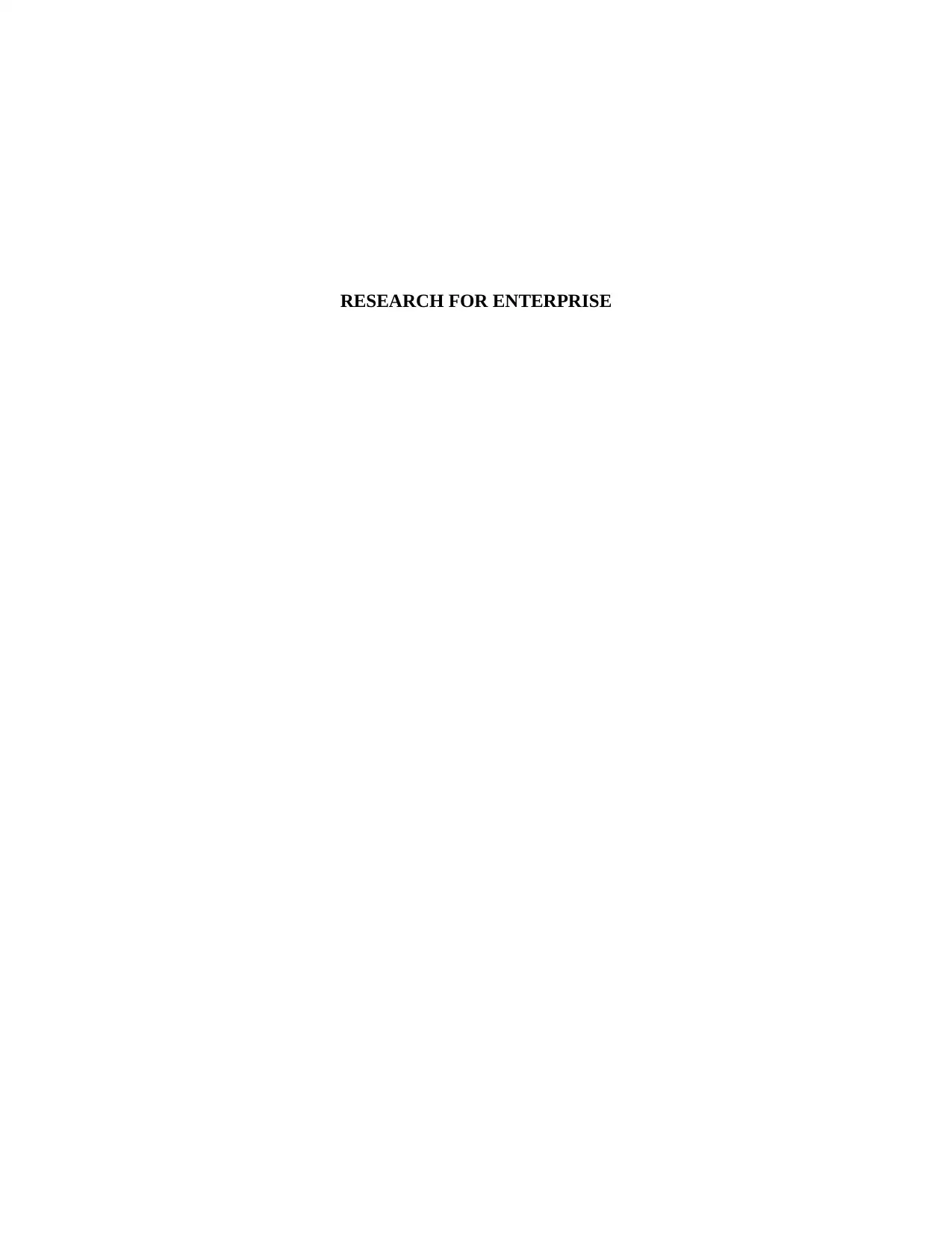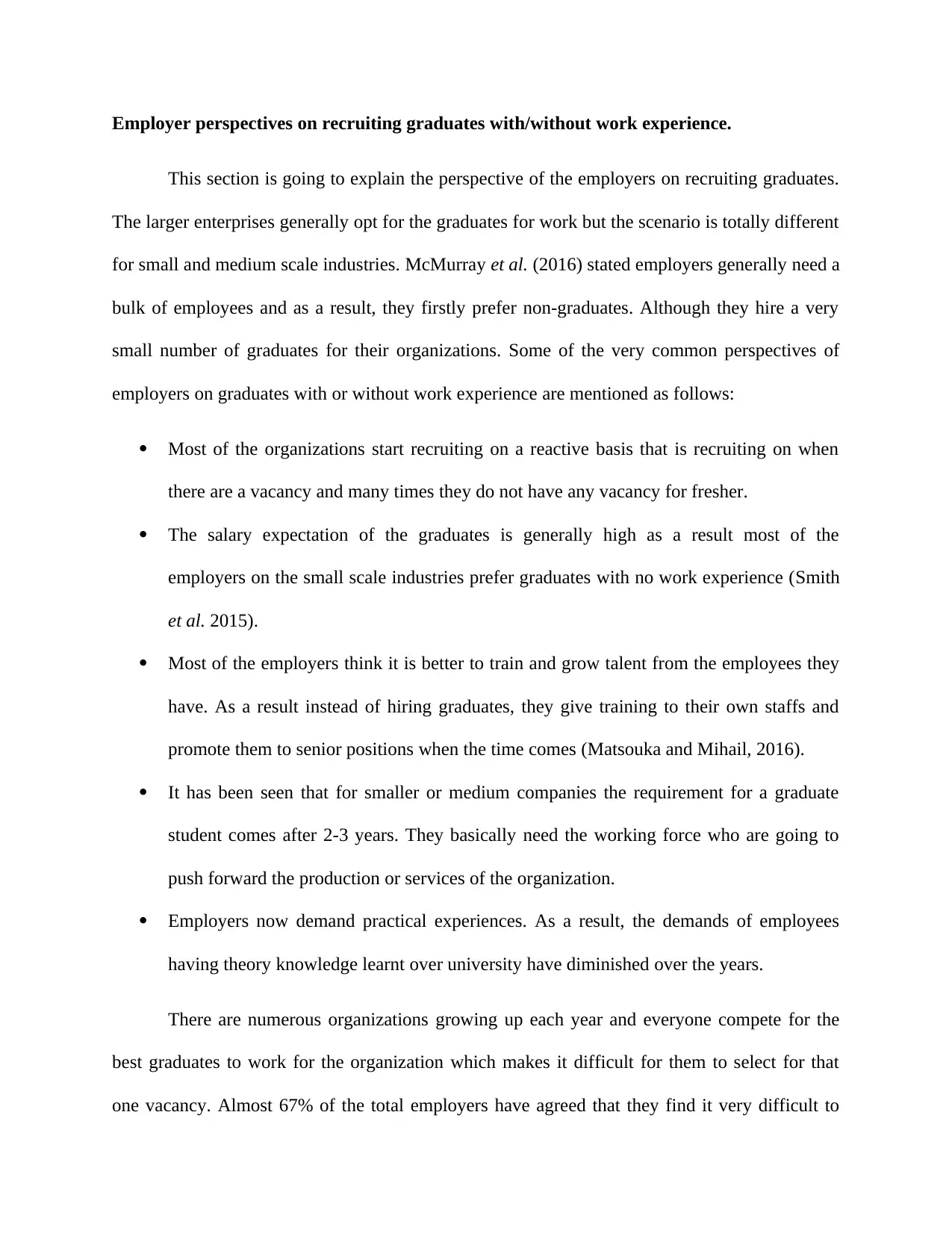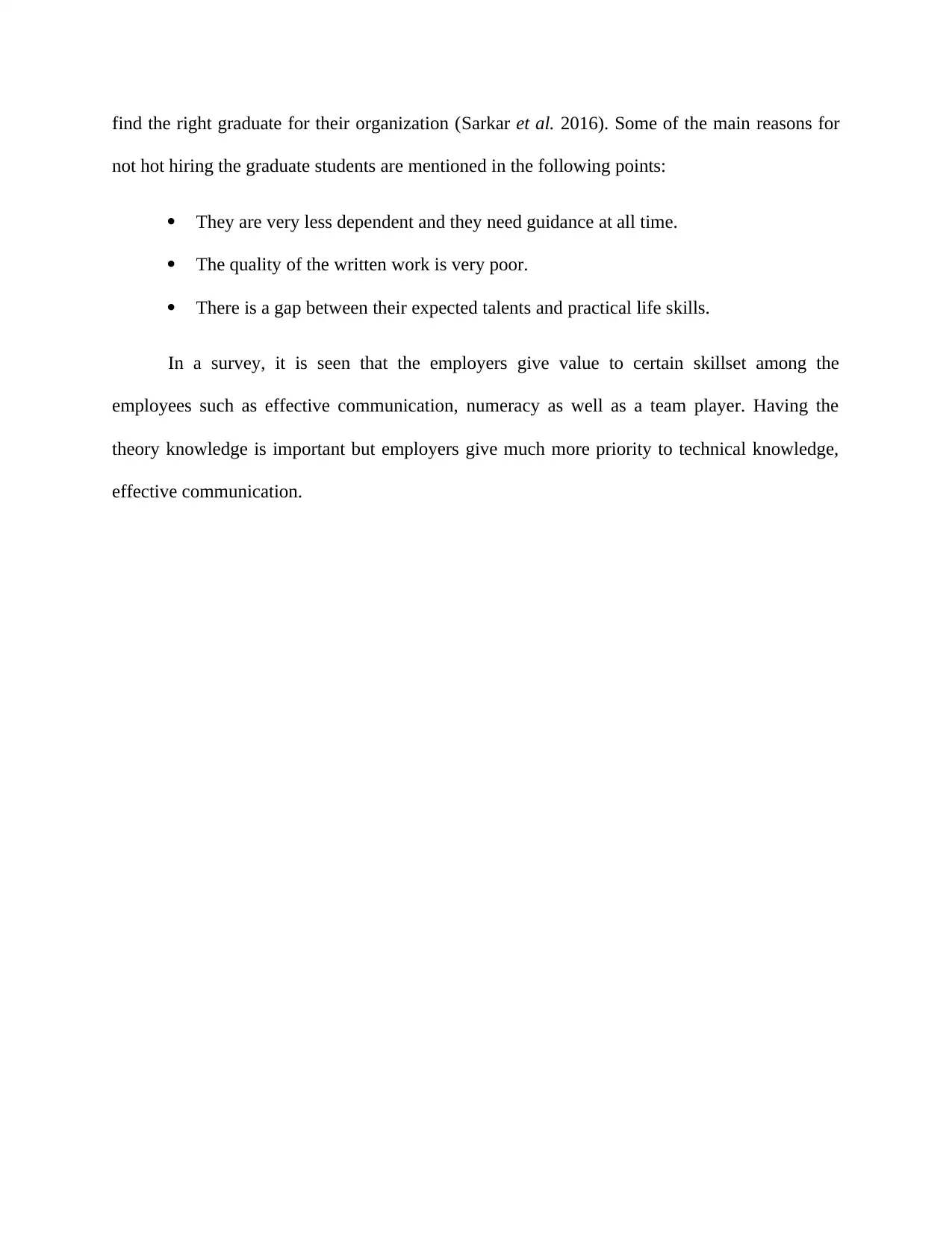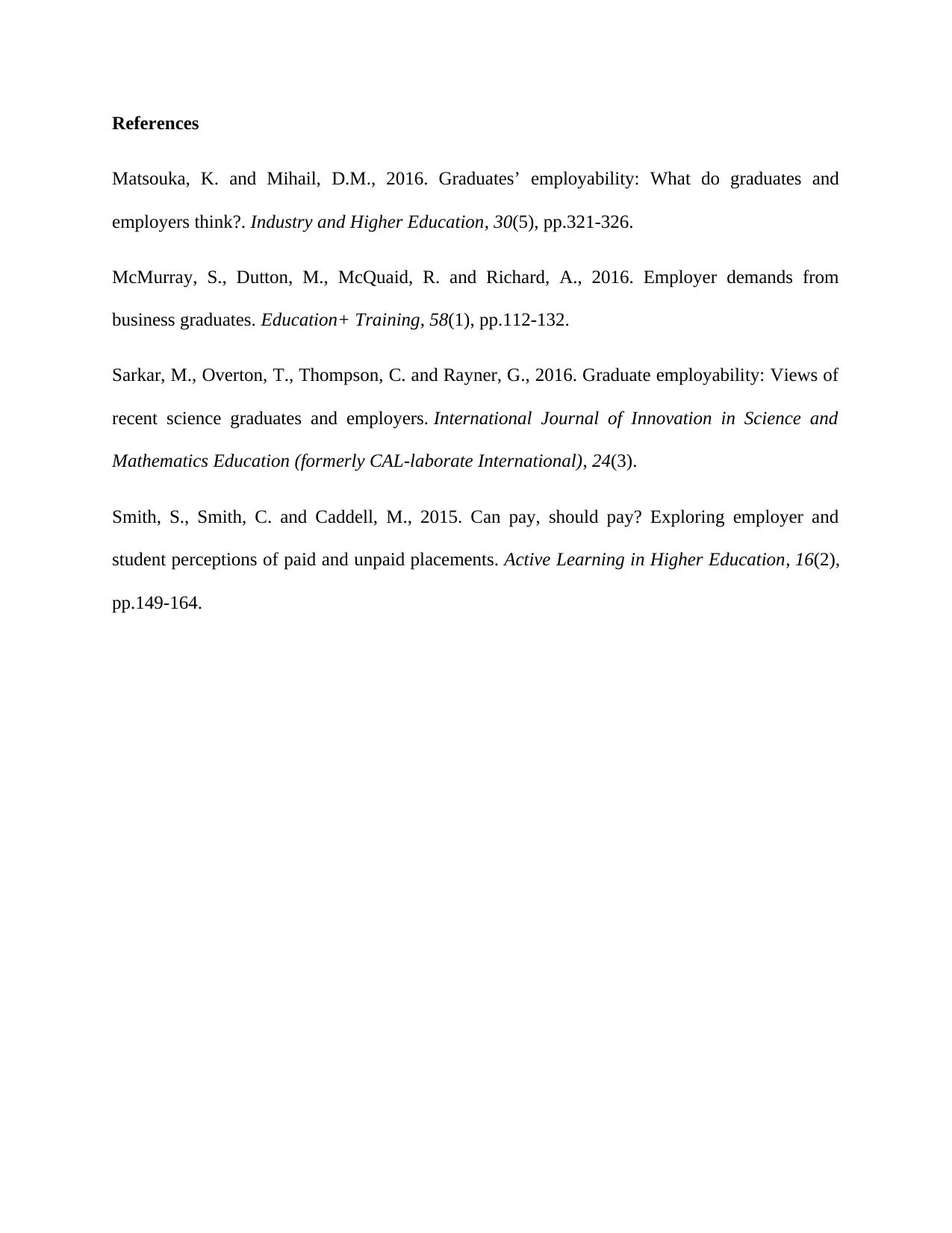Employer Perspectives on Recruiting Graduates: A Detailed Analysis
VerifiedAdded on 2023/05/28
|4
|632
|483
Report
AI Summary
This report examines employer perspectives on recruiting graduates, highlighting differences between large enterprises and small to medium-sized industries. While larger enterprises often recruit graduates, smaller companies may prefer non-graduates due to factors like salary expectations and a focus on internal talent development. Employers often recruit reactively, filling vacancies as they arise, and may find it more cost-effective to train existing staff. Practical experience is increasingly valued, diminishing the importance of theoretical knowledge alone. Employers seek graduates with strong communication, numeracy, and teamwork skills, but many struggle to find the right fit, citing issues such as a lack of independence and a gap between expected skills and practical abilities.
1 out of 4





![University of [University Name] Management Graduate Report](/_next/image/?url=https%3A%2F%2Fdesklib.com%2Fmedia%2Fimages%2Fib%2F09e1c82639b84cb48c8b968c28a700b0.jpg&w=256&q=75)





![[object Object]](/_next/static/media/star-bottom.7253800d.svg)